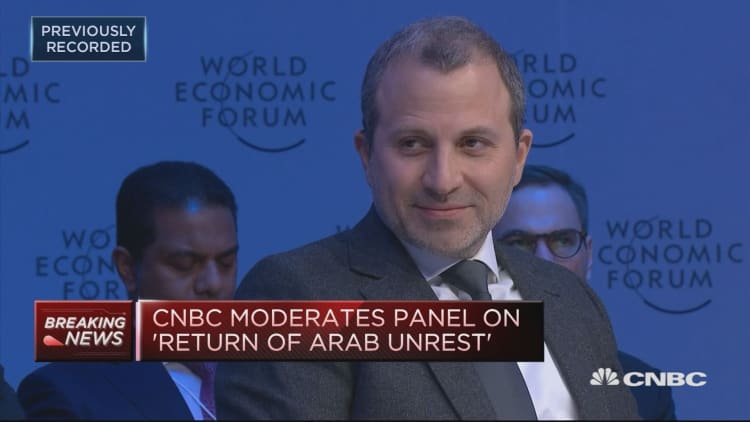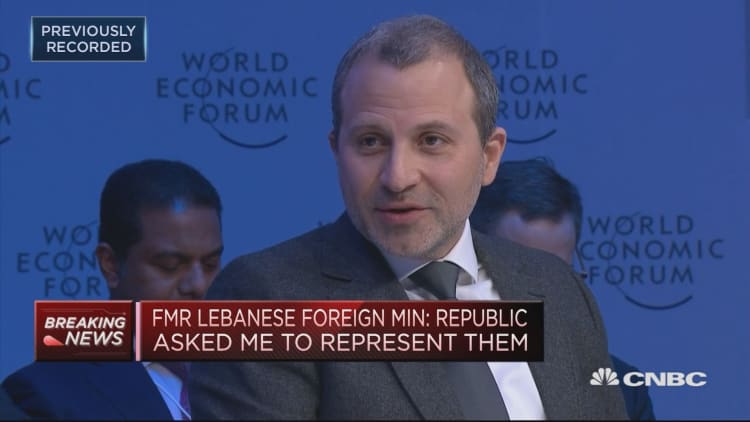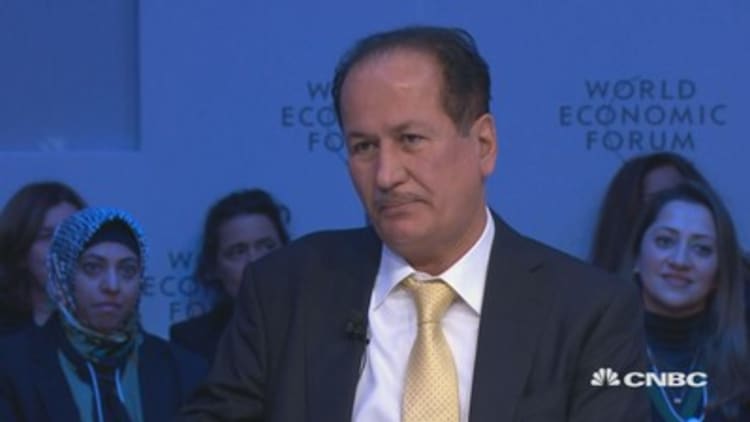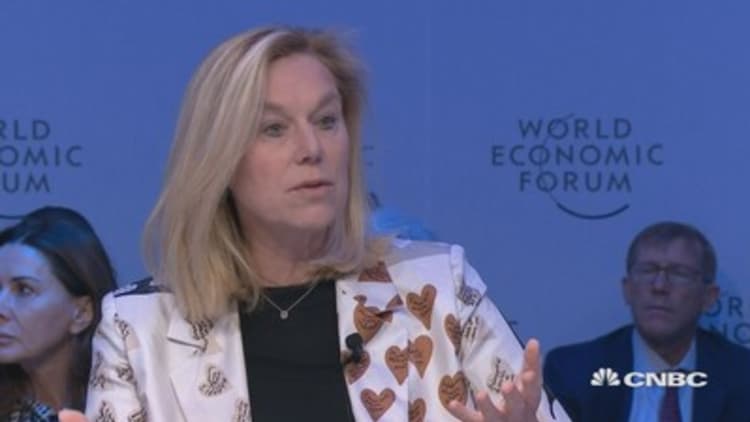
Gebran Bassil, Lebanon's former foreign minister, came to Davos "on his own expenses," he told CNBC at the World Economic Forum in Switzerland on Thursday.
Bassil's claim came as a defense against a torrent of accusations of public funds misuse by a politician viewed as the face of Lebanon's political corruption and economic disintegration. His presence at Davos has drawn widespread anger among Lebanese, with petitions to ban his participation at the elite event garnering tens of thousands of signatures.
Hundreds of Lebanese citizens are reported to have been injured, arrested and hospitalized in nationwide anti-government protests in the Middle Eastern country as the alpine conference got underway.
"I came simply on my own expenses," Bassil, who heads the largest political bloc in Lebanon's parliament, told CNBC's Hadley Gamble.

"I know rumors and lies circulate always on issues like this, but I am used to this and this is the reality. On my own expenses."
The claim raised immediate questions of how someone on a civil servant salary could charter a personal plane. Bassil added that "This was offered to me. You know I was invited here ... Not one Lebanese lira on the expense of the Lebanese treasury. Very simple."
Bassil is a target of growing rage across Lebanon and the subject of a popular anti-government protest chant.
The son-in-law of Lebanese President Michel Aoun, Bassil is supported by Shiite militant and political group Hezbollah, which is designated a terrorist organization by the U.S. Many in and outside of Lebanon accuse him of corruption, pilfering the country's bankrupt electricity utility and proliferating the sectarian politics that stymied an economy now facing its worst crisis since the country's bloody 15-year civil war that ended in 1990.
Popular protests have rocked the small country of 6 million since October, and have recently spiraled into violent clashes with police as security forces use rubber bullets, tear gas and water cannons on demonstrators. More than 100 people have been injured.

The protests — the country's largest in 14 years — are a manifestation of widespread anger at decades of corruption, dysfunctional government and the deterioration of basic public services. A new government announced Tuesday failed to satisfy the demonstrators, who want a full overhaul of the country's sectarian political system.
Lebanon's debt-to-GDP stands at more than 150%, one of the highest in the world, and unemployment hovers between 35% and 40%. Lebanon is ranked 138 out of 175 countries by Transparency International's Corruption Perception Index.
The sheer scope of the protests — spanning all age groups, religious sects and cities all over the country — make it unprecedented and more significant than perhaps any that have taken place before.







